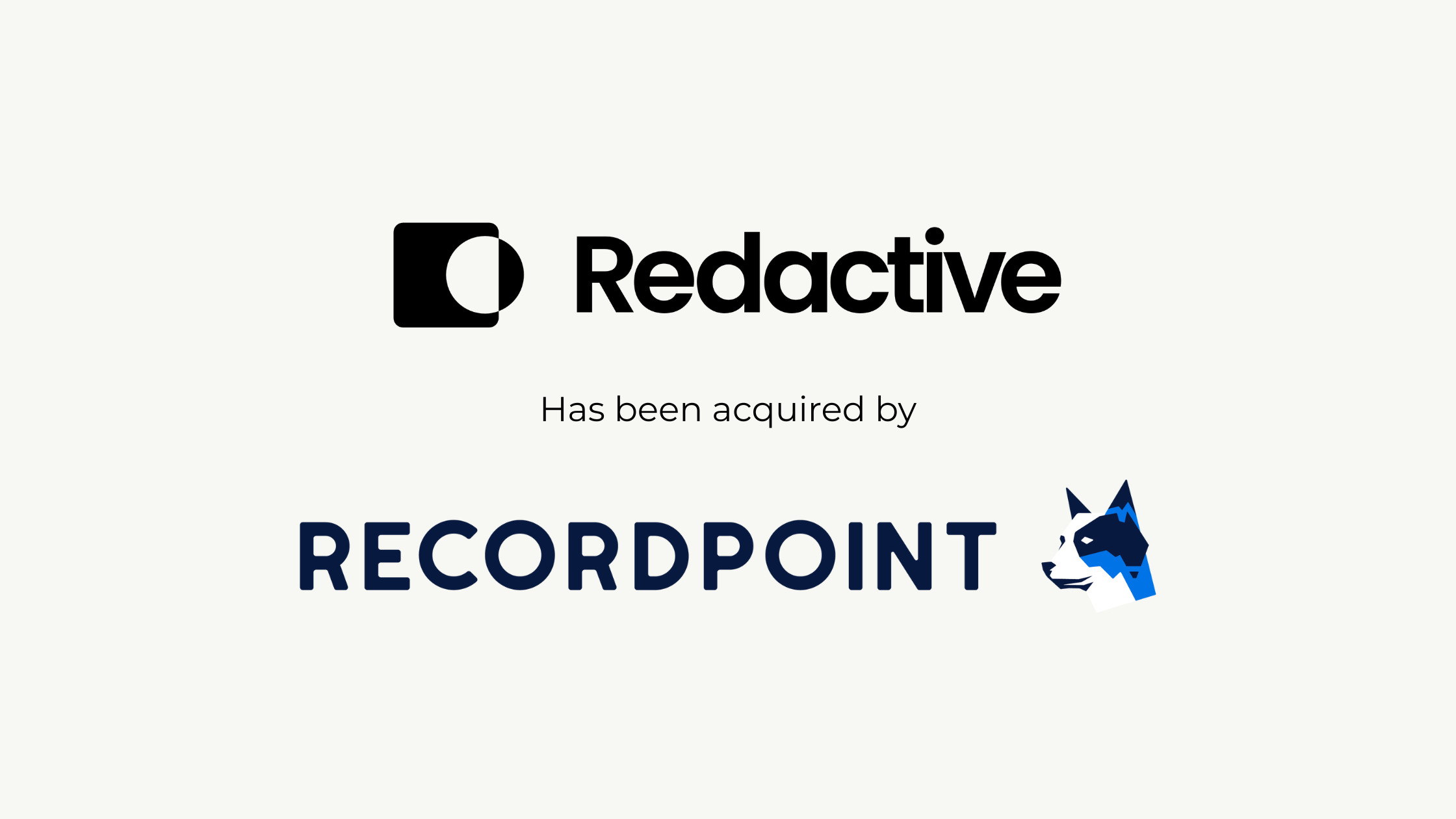Latest Articles

Redactive has been acquired by RecordPoint; a key step to build the future of AI Data Governance
Redactive has been acquired by RecordPoint, a global leader in data security and governance. Together, we are combining forces to deliver a next-generation AI-native governance platform. One built for the real world of enterprise data, compliance obligations, and AI risk.
Redactive Permissions Assurance: Setting a New Standard for How Enterprises Secure Their Data in the AI-Era
Today, we're proud to announce the launch of Redactive Permissions Assurance, a new addition to our AI Security Platform, setting a new standard for how enterprises secure their data in the AI-era. As organizations race to implement generative AI, the challenge of managing data access permissions at scale has become a critical bottleneck – one that traditional security approaches weren't built to handle. Redactive Permissions Assurance helps enterprises uplift their overall data security posture, identifying and resolving data access risks before they block AI initiatives.

Securing the Future: Why Knowledge-based Security is Essential for GenAI Applications
The rapid adoption of Generative AI in enterprises has exposed a critical security vulnerability that traditional document security can't handle. As AI systems process information in fundamentally different ways than humans, they can inadvertently expose sensitive data through connections that security teams never anticipated – creating risks that standard security tools simply weren't designed to detect.

Safeguarding Your Data in the Age of AI: How Redactive Enhances Security for Microsoft Copilot Users
As AI tools like Microsoft Copilot revolutionize productivity, they also introduce new risks, from misconfigured permissions to potential data leaks. Redactive Security steps in to protect your sensitive information while ensuring compliance with regulations like GDPR and CPS230. Discover how Redactive helps organizations confidently integrate AI by detecting mismatched permissions, preventing internal data leaks, and securing your enterprise tools.
The missing piece in the AI application Stack - RAG Index Sharing
The evolution of AI from highly specific models to the broad-reaching capabilities of Large Language Models (LLMs) marks a pivotal shift. Imagine a landscape where data sharing unlocks AI applications that are specific to business use cases and secure.
4 things product leaders shipping AI capabilities need to be aware of
There are a number of new requirements & technologies that PMs need to factor into their roadmap in order to build an AI app, outside the norm of ‘traditional' SaaS application development.
Looking to use LLMs to unlock productivity in your company? Managing data permissions will accelerate value
The core value of a business is in its intellectual property that is secured behind data permissions in a variety of tools (Confluence, Sharepoint, Gdrive, salesforce all have different permission models). While generalisable LLMs are extremely powerful, context about how a business operates, their processes and their customers are vital to solve problems.
